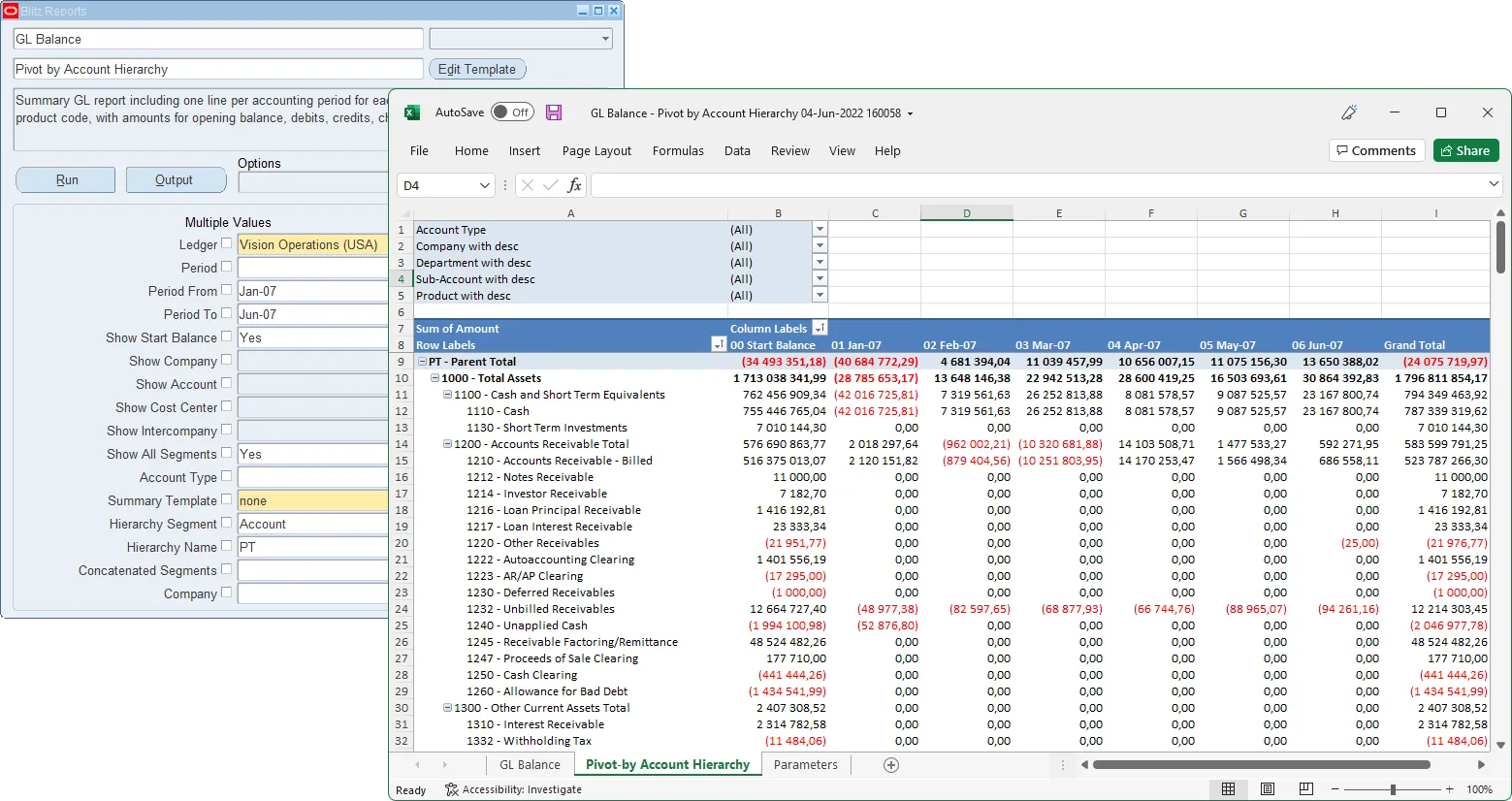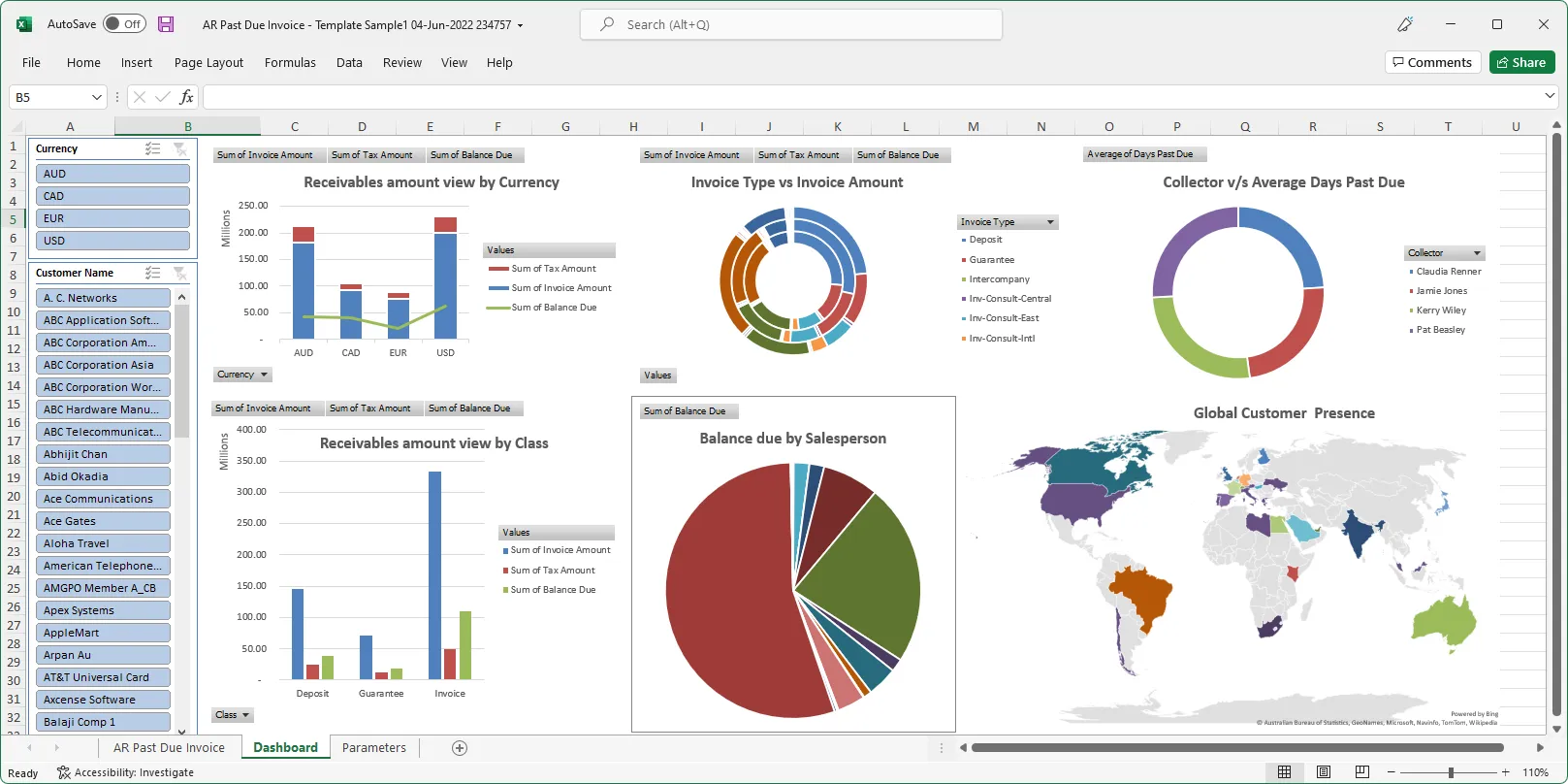CST COGS Revenue Matching
Description:
Imported from Concurrent Program Application: Bills of Material Source: COGS Revenue Matching Report Short Name: CSTRCMRX
The COGS/Revenue Matching Report displays earned and unearned (deferred) revenue, and cost of goods sold amounts for sales orders issues specified in the report’s run-time parameters. The report displays shipped sales order and associated sales order lines and shows the accounts where the earned and deferred COGS were charged.
The report is based on the Revenue and COGS Matching functionality delivered in Oracle EBS R12. Please refer to the following documentation regarding this functionality:
- Oracle Cost Management User Guide, Section: Revenue and COGS Matching
- MOS Document 1060202.1 Understanding COGS and DCOGS Recognition Accounting
Revenue / COGS Recognition Process Flow
When you ship confirm one or more order lines in Oracle Order Management and then run the applicable Cost Management cost and accounting processes, the cost of goods sold associated with the sales order line is immediately debited to a Deferred COGS account pending the invoicing and recognition of the sales order revenue in Oracle Receivables.
When Oracle Receivables recognizes all or part of the sales revenue associated with a sales order line, you run a cost process that calculates the percentage of total billed revenue recognized. Oracle Inventory then creates a cost recognition transaction that adjusts the Deferred COGS and regular COGS amount for the order line. The proportion of total shipment cost that is recognized as COGS will always match the proportion of total billable quantity that is recognized as revenue.
Revenue / COGS Recognition Concurrent Processes
It is recommended the Revenue and COGS concurrent processes be run in the following order:
Run the AR Concurrent Processes first:
- Autoinvoice Master Program. Run autoinvoice to generate the invoice transactions.
- Revenue Recognition. Run the Revenue Recognition Master Program to generate the AR revenue recognition
Then the COGS Concurrent Processes:
-
Record Order Management Transactions The Record Order Management Transactions concurrent process picks up and costs all uncosted sales order issue and RMA return transactions and creates a record for each new order line in the costing COGS recognition matching table. This process is not for Perpetual Discrete Costing (Standard, Average, FIFO). In Discrete Costing, the cost processor selects and costs the uncosted sales order issues and inserts them into the COGS matching table
-
Collect Revenue Recognition Information The Collect Revenue Recognition Information concurrent process calls an Oracle Receivables API to retrieve the latest revenue recognition percentage of all invoiced sales order lines in Oracle receivables for a specific ledger and with activity dates within a user-specified date range. This process must be run before the Generate COGS recognition Event concurrent process.
-
Generate COGS Recognition Events The Generate COGS Recognition Events concurrent request compares the COGS recognition percentage for each sales order line and accounting period combination to the current earned revenue percentage. When the compared percentages are different, the process raises a COGS recognition event and creates a COGS recognition transaction in Oracle Inventory that adjusts the ratio of earned and deferred COGS to match that of earned and deferred revenue. You must run this process after completion of the Collect Revenue Recognition Information concurrent process.
Parameters
Ledger, Operating Unit, Period, Order Number, Sales Order Issue Date From, Sales Order Issue Date To, Ship From Warehouse, Organization, Display Matched Lines, Tolerance Amount, Display Cost Type, Category Set 1, Category Set 2, Category Set 3
Used tables
cst_revenue_cogs_match_lines, cst_cogs_events, oe_order_lines_all, oe_order_headers_all, mtl_transaction_accounts, gl_ledgers, hr_all_organization_units, perpetual_qry_1, mtl_system_items_vl, mtl_parameters, gl_code_combinations_kfv, ra_customer_trx_lines_all, hz_cust_accounts, hz_parties, perpetual_qry_2, ra_customer_trx_all, perpetual_qry
Categories
Dependencies
If you would like to try one of these Oracle EBS SQLs without having Blitz Report installed, note that some of the reports require functions from utility package xxen_util.
Example Report
Report SQL
www.enginatics.com/reports/cst-cogs-revenue-matching/
Blitz Report™ import options
Executive Summary
The CST COGS Revenue Matching report is essential for complying with the matching principle of accounting, which states that expenses (Cost of Goods Sold) should be recognized in the same period as the related revenue. In Oracle R12, this is handled by the “Deferred COGS” functionality. This report analyzes the synchronization between Revenue Recognition events in AR and the corresponding COGS Recognition events in Costing, ensuring that margins are reported accurately.
Business Challenge
When a product is shipped, the revenue might not be recognized immediately (e.g., due to acceptance clauses).
- Margin Distortion: If COGS is recognized upon shipment but Revenue is deferred, the current period shows a loss and a future period shows 100% profit.
- Audit Compliance: Auditors require proof that the COGS recognition percentage exactly matches the Revenue recognition percentage for every sales order line.
- Stuck Transactions: Identifying lines where Revenue has been recognized but COGS has failed to move from “Deferred” to “Actual”.
Solution
This report displays the earned and unearned (deferred) portions of both Revenue and COGS for sales orders.
Key Features:
- Percentage Comparison: Shows the “Revenue Recognition %” vs. “COGS Recognition %” to highlight discrepancies.
- Account Visibility: Displays the specific Deferred COGS and COGS accounts used.
- Process Validation: Verifies that the “Generate COGS Recognition Events” program is working correctly.
Architecture
The report queries CST_REVENUE_COGS_MATCH_LINES and CST_COGS_EVENTS, linking them to Order Management (OE_ORDER_LINES_ALL) and AR (RA_CUSTOMER_TRX_LINES_ALL).
Key Tables:
CST_REVENUE_COGS_MATCH_LINES: Stores the link between the sales order line and the revenue recognition percentage.CST_COGS_EVENTS: The history of COGS recognition transactions.OE_ORDER_LINES_ALL: The sales order line.RA_CUSTOMER_TRX_LINES_ALL: The AR invoice line.
Impact
- Margin Accuracy: Ensures that gross margin analysis is meaningful by aligning costs with revenues.
- Financial Compliance: Supports adherence to GAAP/IFRS revenue recognition standards (e.g., ASC 606).
- Troubleshooting: Identifies specific orders where the COGS recognition process has stalled.
Oracle E-Business Suite Reporting Library
We provide an open source Oracle EBS SQLs as a part of operational and project implementation support toolkits for rapid Excel reports generation.
Blitz Report™ is based on Oracle EBS forms technology, and hence requires minimal training. There are no data or performance limitations since the output files are created directly from the database without going through intermediate file formats such as XML.
Blitz Report can be used as BI Publisher and Oracle Discoverer replacement tool. Standard Oracle BI Publisher and Discoverer reports can also be imported into Blitz Report for immediate output to Excel. Typically, reports can be created and version tracked within hours instead of days. The concurrent request output automatically opens upon completion without the need for re-formatting.
The Filters, Columns, Rows and Values fields are used to create and deliver the data in pivot table format with full drill down to details.

The Excel template upload functionality in Blitz Report allows users to create their own layouts by uploading an Excel template with additional sheets and charts, automatically refreshed when the report runs again. This allows to create custom dashboards and more advanced visualizations of report data.

You can download and use Blitz Report free of charge for your first 30 reports.
The installation and implementation process usually takes less than 1 hour; you can refer to our installation and user guides for specific details.
If you would like to optimize your Oracle EBS implementation and or operational reporting you can visit www.enginatics.com to review great ideas and example usage in blog. Or why not try for yourself in our demo environment.
Useful Links
Blitz Report™ – World’s fastest data upload and reporting for Oracle EBS
Oracle Discoverer replacement – importing worksheets into Blitz Report™
Blitz Report™ Questions & Answers
Supply Chain Hub by Blitz Report™
© 2025 Enginatics